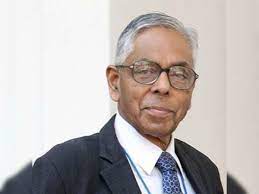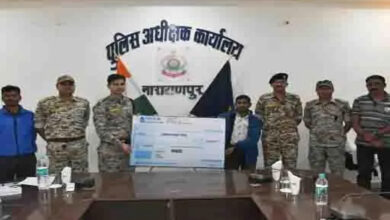‘Drafted internal security brief for Gorbachev at Rajiv Gandhi’s orders,’ says ex-NSA MK Narayanan

New Delhi: Former prime minister Rajiv Gandhi had asked then Intelligence Bureau (IB) chief M.K. Narayanan to write a brief on how India maintained internal security for visiting Soviet leader Mikhail Gorbachev in November 1988, the former civil servant has said.
The brief, made for former leader of the Soviet Union (USSR) Mikhail Gorbachev on his request, was mentioned in Congress leader and former diplomat Mani Shankar Aiyar’s autobiography Memoirs of a Maverick: The First Fifty Years (1941-1991).
Aiyar, former Indian Foreign Service officer from the 1963 batch, was joint secretary at the Prime Minister’s Office (PMO) at the time of Gorbachev’s visit.
“What I recollect is that I set out, in brief, a list of the major law and order events and insurgencies that shook India from 1947-1988,” Narayanan, a 1955-batch retired IPS officer who eventually became India’s NSA under the Manmohan Singh-led United Progressive Alliance government in 2005, told ThePrint.
“It began with a description of the initial communist uprisings in the Telangana region of the then Madras State and in North Bengal, during the late 1940’s.”
The request by Gorbachev for such a brief finds no mention in an internal Soviet report of his “friendly” visit to India, translated and made available by the Woodrow Wilson International Center for Scholars (Wilson Center), a Washington-based think-tank.
But the report describes the topics discussed during the visit — including India’s support for Soviet efforts in the field of nuclear disarmament and their attempts at halving their strategic offensive weapons.
The two leaders discussed the situation in Afghanistan, with Gandhi affirming India’s support for the Geneva Accords and offering India’s support for the process of national reconciliation in that country.
The Geneva Accords were agreements signed between Afghanistan and Pakistan and guaranteed by the United States of America and USSR. Signed in April 1988, they consisted of a variety of instruments on settling the situation in Afghanistan and offered a timeline for the withdrawal of Soviet troops from that country,
Other topics discussed include reaffirming the agreement to exchange information and coordinate policy towards Pakistan. According to the report, Rajiv Gandhi also raised concerns on the militarisation of Japan and its “possible consequences”.
















